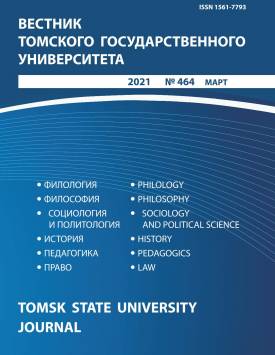Image of an Ideal Future: Russians' Normative Concepts of Authorities
The study analyses citizens' normative concepts of authorities. The concepts serve as reference for comparing real authorities with their ideal counterpart. Images of ideal authorities have a complicated psychological structure connected with archetypes of national political culture. This defined the set of research instruments that include: focused interviews, semantic differential method, projective methods (associative test, method of unfinished sentences, drawing test “Ideal Authorities”), and some others. The sample included 450 respondents from 20 regions. The study has shown the following. Besides immediate reactions to the authorities' decisions and particular events, political behavior and mentality are also determined by deeper factors connected with ideal representations, values and archetypes that serve as references for citizens in their evaluation of real authorities. Images of the future play the role of an action acceptor preempting and tuning people's behavior in the present. The absolute majority of the respondents (86%) believe that authorities are an intrinsic part of our social design. This does not mean that real authorities are so attractive for them. But in some ideal future the overwhelming majority (74.9%) evaluate authorities positively. The author's data show that in recent years normative representations of authorities have essentially transformed in Russia. Citizens revised their expectations from authorities. On the unconscious level of authorities' perception, the need for love, respect and care about people dominates over material needs. Lack of this need's satisfaction causes the growth of political distrust, absenteeism and escapism. A number of archetypical representations in the images of ideal authorities have been revealed; these representations - of an integral, indivisible and sacred nature of authorities - constitute the core of Russian mass political mentality. The respondents do not share the idea of division of power into different branches or levels and their checks and balances. Executive power dominates the legislative and judicial ones not only in the present but also in the image of the future. Opposition seems to be equally incompatible with our tradition and is seen as artificial and “fake”. This attitude also concerns many other concepts of contemporary official political discourse. They are formally recognized but on unconscious level are called into question. New “democratic” norms and values constitute the peripheral part of political mentality. This layer of normative representations of authorities includes the ideas of power separation, the competition of elite groups and parties, the multiparty system etc. Thus, the structure of the images of authorities looks very heterogeneous and mosaic. Traditional representations and images dominate in it, but new ones have already penetrated mass mentality and gained a foothold in it though our citizens cannot understand why they need these images. These peripheral representations in the case of a crisis can be replaced by deeper and more authentic mental structures.
Keywords
image of future, normative concepts of authorities, real and ideal images of authorities, possible and desirable imagesAuthors
| Name | Organization | |
| Shestopal Elena B. | Lomonosov Moscow State University | shestop0505@rambler.ru |
References

Image of an Ideal Future: Russians' Normative Concepts of Authorities | Vestnik Tomskogo gosudarstvennogo universiteta – Tomsk State University Journal. 2021. № 464. DOI: 10.17223/15617793/464/12
